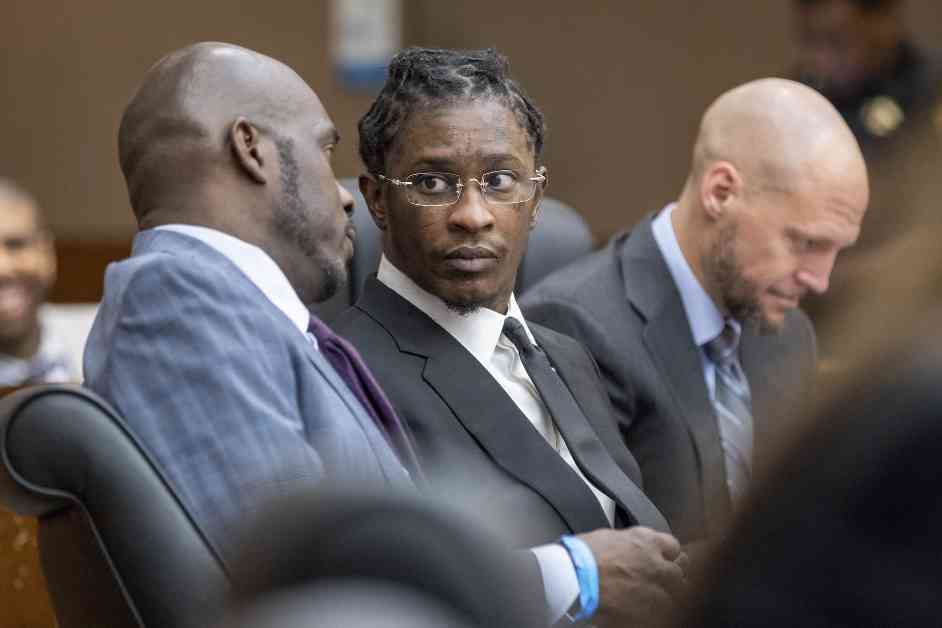Young Thug, whose real name is Jeffery Williams, was released from custody after spending over 900 days in jail as part of a long-running trial. He has been sentenced to serve 15 years on probation after entering a guilty plea deal related to charges including firearm possession and participation in criminal street gang activity. The case, which involved more than two dozen defendants, was one of the longest in Georgia’s history.
Williams pleaded guilty to several charges, including participation in criminal street gang activity, violating the Georgia Controlled Substances Act, firearm possession during a felony, and possession of a machine gun. He also entered a no-contest plea to racketeering and leading a criminal street gang.
During the trial, prosecutors accused Young Thug of leading a criminal street gang responsible for murder and various violent crimes in Atlanta over the past decade. They alleged that the artist’s label, Young Stoner Life Records (YSL), was affiliated with a criminal street gang known as Young Slime Life, which has ties to the national Bloods gang. Prosecutors claimed that Young Thug was involved in crimes committed by YSL members, including a fatal shooting in 2015.
Despite the accusations, Young Thug denied being the head of a criminal enterprise. He expressed remorse in court, taking responsibility for his actions and apologizing to his family. The judge emphasized the importance of being part of the solution rather than the problem, urging Williams to make positive changes in his life.
As part of his probation, Young Thug is required to stay away from the metropolitan Atlanta area for the first 10 years, except for specific events like weddings and funerals. He must also conduct anti-gang and anti-gun presentations in the area four times a year, complete 100 hours of community service annually, and avoid contact with criminal street gang members.
The trial faced criticism for using rap lyrics as evidence of criminal activity, sparking debates about freedom of speech and artistic expression. Young Thug acknowledged the potential impact of his music on listeners’ perceptions and pledged to make changes in his lyrics.
Several codefendants in the trial accepted plea agreements, with reduced sentences in exchange for admitting guilt to various charges. The case, which involved multiple motions for a mistrial and a lengthy jury selection process, finally concluded with the release of Young Thug and other defendants.
Despite the challenges faced during the trial, Young Thug expressed a willingness to learn from his mistakes and contribute positively to society. The case serves as a reminder of the complexities of the justice system and the importance of taking responsibility for one’s actions.
